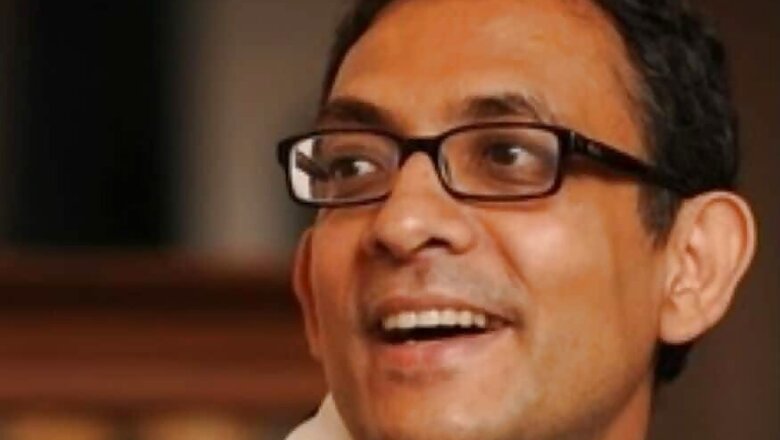
views
Development economist Abhijit Banerjee is best known as one of the founders of the Abdul Latif Jameel Poverty Action Lab (J-PAL), which pioneered “randomised control trials”, experiments designed to test the efficacy of public policy through empirical evidence. He is also a co-author of ‘Poor Economics’ an international best seller that lies at the confluence of economics, policy and action. Banerjee, the Ford Foundation International Professor of Economics at the Massachusetts Institute of Technology, replies to questions on Prime Minister Narendra Modi’s demonetisation drive:
We have now crossed the 50-day period that Prime Minister Modi asked after announcing demonetisation. What’s your verdict?
I never understood the logic behind it. For one, why introduce Rs 2,000 notes? And I suspect the pain is much greater than is being currently anticipated.
It has been said recently that India doesn’t have an effective mechanism to measure the informal economy. How does one then capture the impact of demonetisation on India’s informal economy?
Since we mostly measure the informal sector by the size of the formal sector, at least in the short run, our GDP data is probably going to undercount the economic losses.
There are two views on the economic impact. One is that things will get better in a quarter or two while the other says that the effects will be more long lasting. Which view do you subscribe to?
I really don't know; it depends on how effectively informal credit arrangements substituted for cash. And to be honest, no one knows. We are doing a survey trying to understand this very question.
During the last crisis in 2008, rural demand as a result of purchasing power through redistributive programs kept the Indian economy afloat. Is there a safety mechanism you see this time round which will help ride out the impact of demonetisation?
I hope that MGNREGA will do something to stabilise demand this time as well, but it relies on the panchayats responding quickly and expanding the raft of projects they propose and the Centre being willing to relax the purse strings. What I hope does not happen is another lending boom, like the one in 2009, which leads to the disastrous state of our banking sector.
How big is the informal economy in India and how does one begin to understand what ‘informality’ is? Is this sector served better by cash or cashless/digital means?
It is everyone who is not an owner of a registered firm or a formal employee of such a firm, a not-for-profit organisation or the government. It employs between 85 and 90 percent of the labour force.
The main rationale for demonetisation was to combat black money, which later shifted to ushering in a cashless or less-cash economy. What is your view on the impact of demonetisation on both?
I think the long-term move to a cashless economy is desirable and will help make corruption somewhat less profitable but in the end there is no remedy for corruption that does not involve contract and law enforcement against the corrupt. The impunity with which the largest defaulters on bank debt are allowed to function suggests that there is not enough appetite to take them on. Till that happens, corrupt people will pay each other in gold and transfers from their foreign bank accounts if there is no cash.
How is India’s demonetisation being viewed abroad in policy and academic circles?
With bewilderment!
Which sections benefit the most and which sections lose the most out of demonetisation?
It depends on what you call benefit. I think there is a lot of joy among those who might have themselves felt some pain, but feel that the corrupt rich were much more hurt. If the claims about 97 percent of the cash having come back are true then the rich may not have felt so much pain, and the joy might subside.




















Comments
0 comment